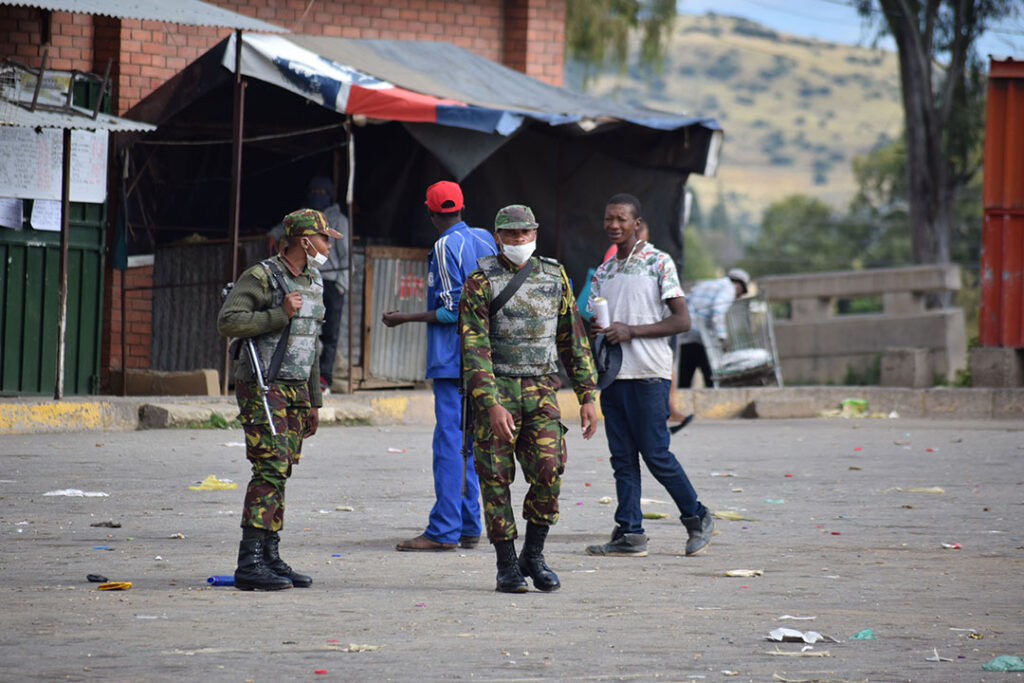ADF STAFF
The U.S. Embassy in South Africa has donated protective gear and medical equipment to the Kingdom of Lesotho to help combat the spread of COVID-19.
Officials met at the border post between South Africa and Lesotho’s capital, Maseru, June 25 to hand over 12,000 medical face masks, 11,000 face shields and 256 infrared thermometers.
U.S. Ambassador to Lesotho Rebecca Gonzales attended a ceremony to present the equipment to Motlatsi Maqelepo, Lesotho’s minister of health, in the town of Mafeteng, 76 kilometers south of Maseru.
“The United States contributed over 71 million maloti [$3.75 million] already directly to help Lesotho address the outbreak through our trusted implementing partners and the Ministry of Health,” Gonzales said in her Fourth of July remarks on Lesotho Television. “Last week, I personally accompanied another U.S. government donation of 770,000 maloti [$45,000] worth of top-quality protective equipment and medical supplies to the National Drug Service Organization warehouse in Mafeteng, from where the Ministry of Health will ensure the supplies are distributed equitably to areas of greatest need.”
Lesotho also received donations of protective gear and equipment from the United Nations World Food Program on July 9. It reports that nearly half of Lesotho’s 2.1 million people have experienced “acute food insecurity” this year.
A small, predominantly rural, landlocked nation within South Africa, Lesotho was the last African country to report its first case of COVID-19, announcing it May 13, one week after lifting a five-week lockdown.
Hundreds of Lesotho nationals, known as Basotho, live and work in South Africa and are at high-risk given that South Africa has the highest number of COVID-19 cases on the continent with 298,292 as of July 15, according to the Africa Centres for Disease Control and Prevention.
Lesotho had 256 cases and three deaths as of July 15, a significant increase from the four recorded cases through the end of June.
As the virus spreads, Lesotho is focusing on improving its health infrastructure.
“What makes COVID-19 especially dangerous right now is the fact that our health system’s capacity is very low,” said Thabo Khasipe, head of Lesotho’s National Emergency Command Centre, the Lesotho Times reported. “We have a low ICU capacity of just 10 ICU beds in the whole country.
“That means only 10 people can occupy those beds, and if the next person comes in, they are likely to die due to shortage of facilities. We have to increase our current ICU beds to at least 1,000.”

